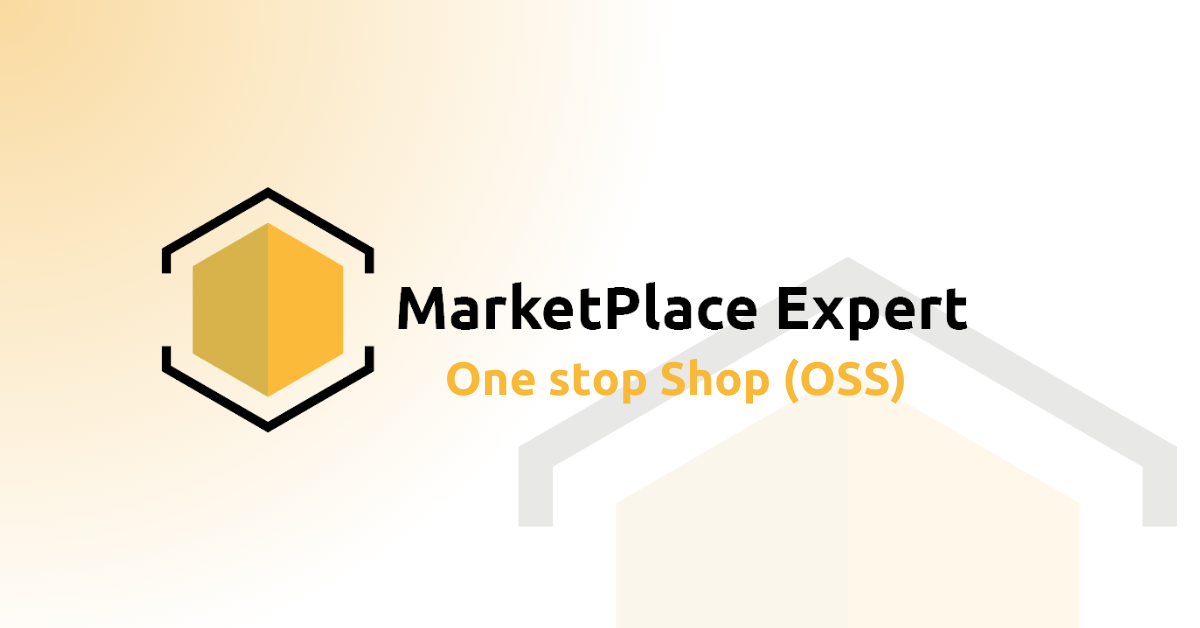What exactly is the One Stop Shop?
You and your company are ready to start selling in the European market. This also means that you’re liable for VAT (Value Added Tax) in each of these countries, requiring separate tax filings. Thanks to the introduction of the One Stop Shop (OSS), this process has become much simpler, allowing you to submit VAT returns all at once. Convenient, isn’t it?
How does it work?
You provide details of all your deliveries in the different countries where you sell or operate. These details are collected, categorized, and forwarded to the countries where your company still owes VAT by the tax authority of the country where your business is registered. This process is carried out electronically four times a year. Therefore, you no longer need to keep track of various tax filing deadlines for each country.
To register for the OSS, you can visit the “Mijn Belastingdienst Zakelijk” (My Tax and Customs Administration for Businesses) page.
The benefits of OSS
The OSS eliminates a significant amount of administrative burden related to taxes. You only need a VAT number in the country where your business is established, and all tax filings are consolidated into a single registration, making it much simpler and reducing headaches. In terms of invoicing, you only need to consider the tax rules of that country.
The One Stop Shop also offers a financial advantage by reducing the additional costs often associated with international bank transactions. Now, you only need to file returns once per quarter.
Another key benefit is creating a level playing field. Before the introduction of OSS, businesses in countries with higher VAT rates were at a disadvantage compared to competitors in countries with lower VAT rates, as they had to pay more in taxes. With OSS, there’s no longer an advantage in registering a large company in a low VAT rate country, as the VAT rates are now standardized, promoting fair competition among all businesses.
Why Was the One Stop Shop Introduced?
Before the introduction of the OSS, a precursor known as the ‘MOSS’ (Mini One Stop Shop) was implemented on January 1, 2015. The MOSS was initially designed to simplify the payment of VAT for digital services supplied to other EU countries. This included services like gaming, download services for music, video, e-books, and telecommunications, among others.
The conveniences offered by the MOSS scheme prompted EU lawmakers to expand it to cover all e-commerce sales and remote sales to consumers (B2C). This new tax model was introduced on July 1, 2021, under the new name ‘One Stop Shop.’
What Changes with the Introduction of OSS?
First and foremost, the tax filing process itself changes. With the introduction of OSS, you have the option to decide whether or not to use the One Stop Shop scheme. Registering for OSS is not mandatory but significantly simplifies the process of tax reporting.
Prior to the introduction of OSS, each country could set its own threshold value, and if your sales exceeded this threshold, you were required to have a VAT registration in that specific country.
- This is now a thing of the past thanks to the establishment of a common European threshold of €10,000.
- If your company’s sales exceed this €10,000 threshold, you qualify for the One Stop Shop!
The introduction of this new threshold means that as an e-commerce seller, you need to carefully consider your strategy and structure, including factors such as pricing and your trading partners.
The Impact of One Stop Shop on Your Sales via Amazon
Online marketplaces, just like you, are constantly evolving. Marketplaces such as Amazon are continuously innovating their logistics systems in response to consumer demand for faster delivery of their packages.
Amazon has opened 8 new distribution centers in recent years, including a sorting center in the Netherlands. Amazon already has logistics centers in 7 of the largest EU countries, enabling them to guarantee even faster deliveries to consumers within the EU.
While this is great news for customers, it does have some implications for e-commerce sellers when it comes to VAT registrations, especially if you use Amazon’s Fulfillment (FBA) services.
When you use FBA (Fulfillment by Amazon), VAT registration becomes somewhat more complex. This is because you have local inventory stored in Amazon warehouses, possibly in different countries. In this case, you deal with a combination of the OSS scheme and local VAT administrations.
If your inventory is stored in a different country from where your company is registered, and that inventory moves through the EU to another country, the transfer must be reported to the local tax authorities. If this product is actually sold to the customer, it must be reported through your OSS registration.
Summary
While the OSS (One Stop Shop) was introduced to simplify matters, it can still be somewhat complex. Here are the key points to remember:
- The OSS is a tax registration system that manages VAT obligations for all EU countries, reducing administration, lowering costs, and promoting fair competition.
- You qualify for the OSS when your sales exceed the introduced threshold of €10,000.
- OSS registration is handled from the country where your company is registered.
- Important: If you use Amazon’s FBA (Fulfillment by Amazon), you still need to consider both local VAT registrations and OSS registration.
- Registering for the OSS is not mandatory, but it significantly simplifies the tax reporting process.
More About VAT and Tax Reporting
Our MPPartner Staxxer is ready to assist you in exploring options for your business. With a team of top-rated tax experts in Europe and their own Staxcloud software, they can help streamline and simplify your VAT reporting process!
Visit their website




